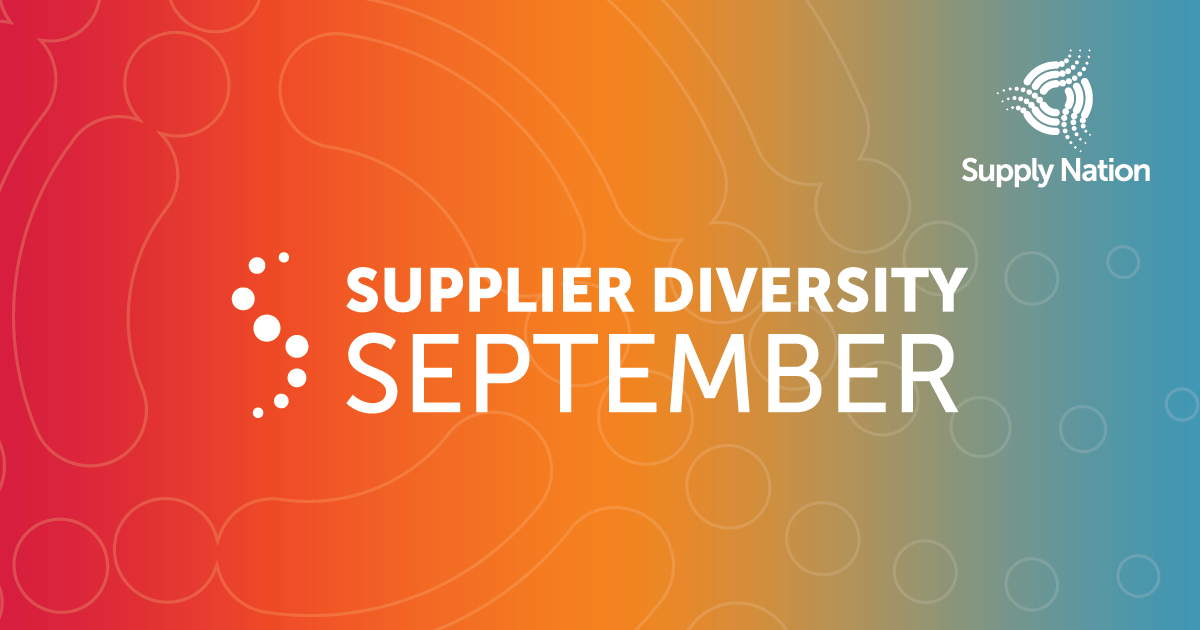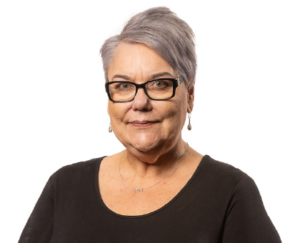
Embracing diversity and inclusivity brings tangible benefits to Australian business – and there are many lessons to be learned from around the world. Strengthening our bonds with like-minded organisations in the wider global village makes sense.
In 2008, a submission was made to the House of Representatives Standing Committee on Aboriginal and Torres Strait Islander Affairs – Inquiry into Developing Indigenous Enterprises. The submission recommended a supplier diversity initiative based on the successful United States model adopted in the late sixties be established in Australia.
A visit to Australia by the United States National Minority Suppliers Development Council (NMSDC) led by Harriet Michel, provided much-needed guidance to commence our supplier diversity journey. Harriet’s personal support and expertise along with the support of the organisation she led at the time was critical to launching our Australian efforts.
As a result, in 2009 Supply Nation, or as it was known then, the Australian Indigenous Minority Supplier Council (AIMSC), was established by the Rudd Government.
Supply Nation started with 13 verified Indigenous businesses and a handful of corporate members looking to procure products and services from those businesses. In 2009-10, its first year of operation, Supply Nation delivered around $300,000 of procurement spend with those businesses.
Fast forward to 2022-23, and we facilitated $4.1 billion worth of procurement into Indigenous businesses, families and communities.
From 2009 to 2023, Supply Nation has facilitated more than $14.7 billion in procurement between our Indigenous suppliers and members. Research from the Dilin Duwa Centre for Indigenous Leadership at the University of Melbourne notes that in 2022 Indigenous businesses paid $ 4.2 billion in wages and employed almost 117,000 people.
We now have over 5,000 Indigenous-owned businesses on our Indigenous Business Direct database which is accessible to anyone looking to source products and services from the Indigenous business sector. Excitingly, around a third of these businesses are led or owned by women.
Since that time, we have maintained strong links to the NMSDC as well as other First Nations and supplier diversity organisations with whom we share the same values and goals – learning and collaborating. Some of these organisations include the Canadian Council for Indigenous Business, the American Indian Chamber of Commerce (Oklahoma), the Native American Business Association, the Alaskan Native Village Corporation Association, New Zealand’s Amotai and more recently Canada’s National Aboriginal Capital Corporation Association and the National Center for American Indian Enterprise Development.
We have also taken steps to build direct relationships with United States First Nations tribes such as Navajo, Choctaw and the Iowa Tribe of Kansas and Nebraska.
Thinking globally, acting locally
A priority for Supply Nation has been participating in the Australia New Zealand Leadership Forum’s Indigenous Business Sector Group. Along with our efforts in Australia, building international relationships and constructive cooperation provides us with opportunities to continue to learn how best to support our Indigenous-owned businesses.
It also leads to practical commercial opportunities for our business in accessing global supply chains and collaboration opportunities with like-minded firms. Very strong bonds can be built between First Nations peoples and organisations globally, and that will assist our suppliers to grow their businesses.
Of course, we are not the first or only organisation to take up this challenge and develop international pathways for First Nations people to meet. The Australia and Aotearoa-New Zealand Indigenous Collaboration Arrangement, signed in 2020, is one good example that seeks to deepen links between Aboriginal, Torres Strait Islander and Māori peoples.
For our Indigenous businesses and their Australian business partners, developing international collaboration is a natural extension of their commitment to diversity and inclusion goals. International business success always begins at home by building skills and capability, understanding the processes and markets involved, learning who stands ready to assist, leveraging collaborations and developing brand and marketing assets “fit for purpose”. To assist this process, our Connect 2024 event held in Brisbane this year hosted our largest international delegation ever with representatives from the United States, Canada and New Zealand looking to build relationships with local businesses and organisations.
Supporting the Government’s Southeast Asia strategy and identifying where Indigenous businesses can seek opportunities in those markets has been a priority this year. As have our efforts to support the Australian participation at the Osaka World Expo.
A sustainable investment
The report: First Nations Business Succeeding Internationally found that First Nations trading businesses typically create more jobs and contribute more to the national economy than non-trading First Nations businesses. First Nations exporters generated over $670 million in revenue in 2022-23 and typically employed over seven times more staff than other First Nations businesses. A recent report by Supply Nation, The Sleeping Giant Rises, found that Indigenous businesses create $42.6 billion of social value each year.
Greater participation by Aboriginal and Torres Strait Islander-owned businesses in global trade will have a positive impact on diversity and inclusion initiatives both here and overseas. It will inject Indigenous values, relationship-based approaches, wisdom and expertise into international conversations – all of which are perfectly aligned to achieving international business success.
For the first time, Supply Nation led a panel discussion at the Australian Pavillion World Expo Osaka entitled The Global Indigenous Economy: A Discussion at World Expo on the Growth and Potential of Indigenous Businesses Working and Succeeding Internationally.
First Nations representatives from Australia, New Zealand, Canada and United States joined the panel.
The support of Diversity Council Australia members and the broader business community is crucial for the success of our efforts to increase the international participation of Aboriginal and Torres Strait Islander-owned businesses.
Implementing a supplier diversity strategy that emphasises supporting First Nations businesses is a great place to start. Members can include commitment to D&I and sustainability in procurement strategies as well as making sure all employees understand the value that can be accrued, feel that they have been consulted and are very much a part of the strategy.
Raising a family requires a village, a community and in this case, DCA Members are the village. Members can wrap themselves around Indigenous businesses looking to go global – share their knowledge, experience, contacts and wisdom generously and thoughtfully.
The benefits for all Australians are too great to do otherwise.
 Jenny Wardrop is a Wiradjuri woman from Central West NSW. Jenny has extensive experience working within Government Departments such as the Department of Education Employment and Workplace Relations (DEEWR). Prior to joining Supply Nation, she worked with the Department of Human Services (DHS). Jenny worked for the Darkinjung Aboriginal Land Council for approximately 12 years and has also sat on the Board of Darkinjung Land Council and elected as Chairperson. Jenny holds a BA in Adult Education and Community Management, obtained from the University of Technology Sydney.
Jenny Wardrop is a Wiradjuri woman from Central West NSW. Jenny has extensive experience working within Government Departments such as the Department of Education Employment and Workplace Relations (DEEWR). Prior to joining Supply Nation, she worked with the Department of Human Services (DHS). Jenny worked for the Darkinjung Aboriginal Land Council for approximately 12 years and has also sat on the Board of Darkinjung Land Council and elected as Chairperson. Jenny holds a BA in Adult Education and Community Management, obtained from the University of Technology Sydney.
Additional resources
- Supply Nation’s Export Nation page
- Supply Nation’s Sleeping Giant report
- A Step-by-Step Guide to Creating a Supplier Diversity Program, Archlet
- Purchasing with Purpose: Tools to Develop an Organisational Strategy For Social Procurement and Social Procurement: Creating Employment Opportunities Through Purchasing Expenditure, Research & Policy Centre and Brotherhood of St Laurence
- Gender equitable procurement and supply chains, WGEA
- Stories of Success, Supply Nation
- Indigenous Business and Corporation Snapshot Study 3.0, University of Melbourne
DCA resources
- DCA’s Supplier Diversity resource page
- DCA’s Gari Yala – Speak the Truth: Centreing the experiences of Aboriginal and/or Torres Strait Islander Australians at work report
- DCA submission: Strengthening the Indigenous Procurement Policy through reform
- Respecting First Nations knowledge in business, Dr Terri Janke
